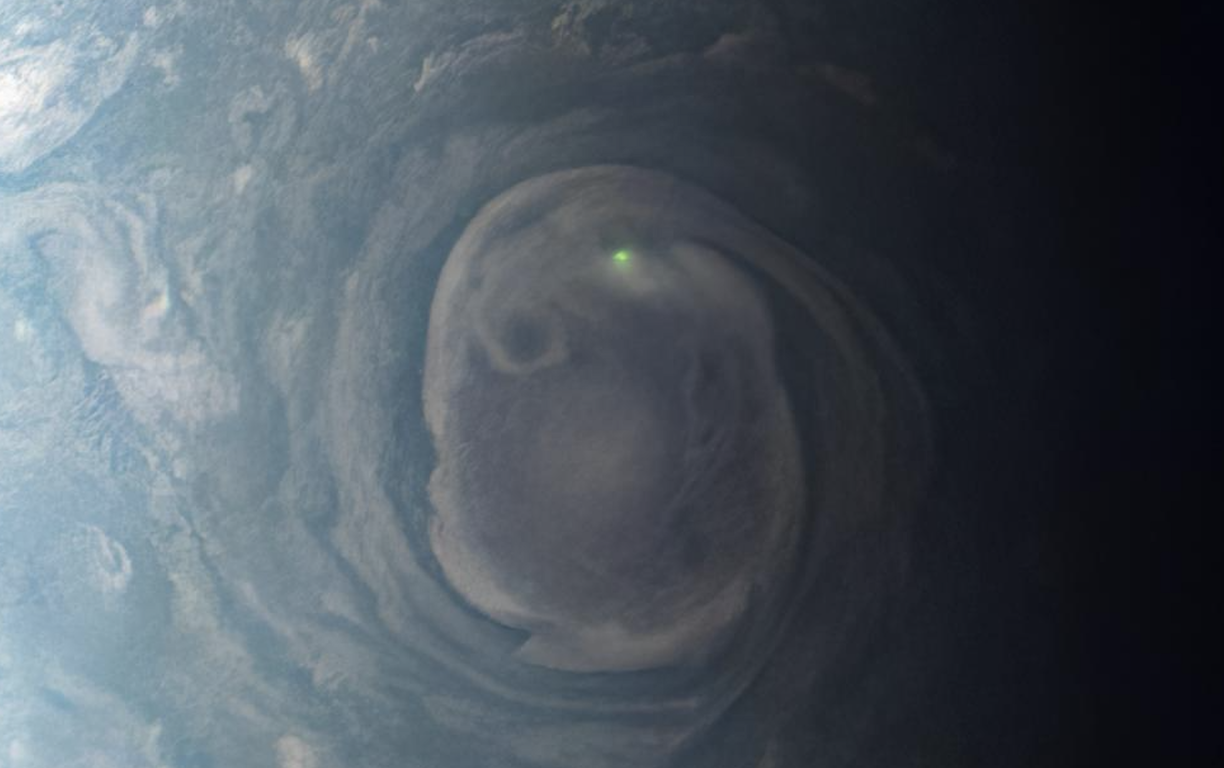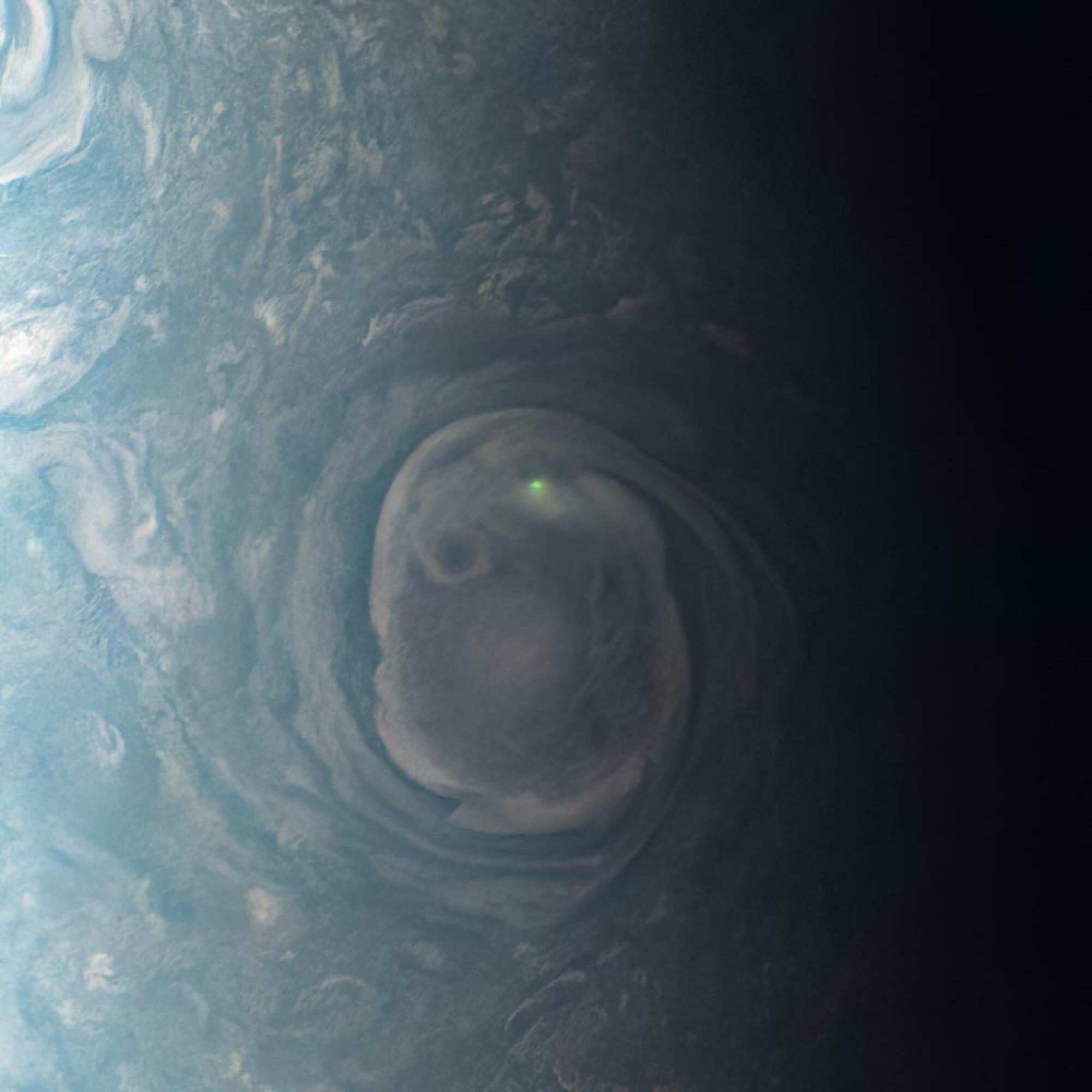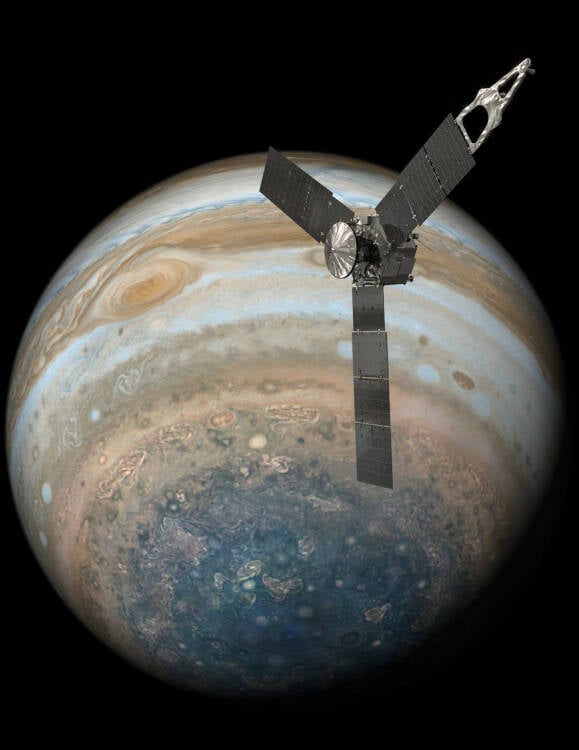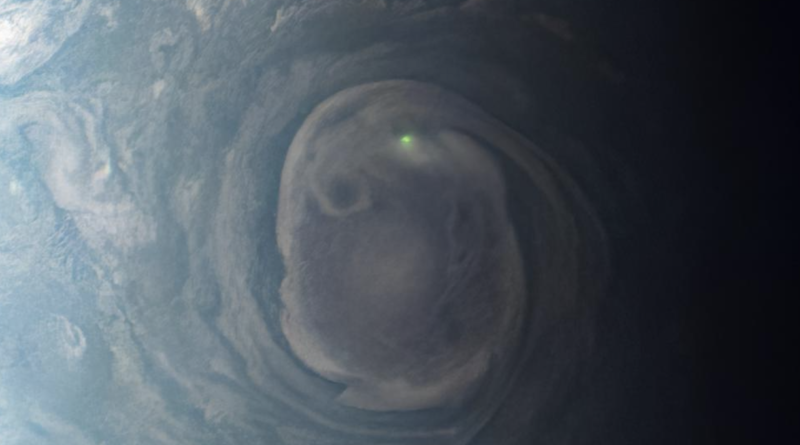Wow, NASA spacecraft spotted lightning in Jupiter storm

NASA‘s Juno spacecraft continues to beam back some eye-opening views of our weird solar system.
The space agency recently released a vivid image from the Jupiter-orbiting mission, showing the glow from lightning inside a Jovian storm. Amid this swirling vortex, the flash happened in clouds of an “ammonia-water solution,” a bit different than our puffy water vapor clouds here on Earth.

Juno snapped this image on its 31st journey around the gas giant, a planet so big it has nearly 100 moons. The image, originally captured in 2020, was processed last year and just released by NASA’s Jet Propulsion Laboratory, which frequently shares images of its robotic extraterrestrial missions, notably on Mars and Jupiter.
By now, Juno has swooped around Jupiter over 50 times, recently capturing stunning imagery of the volcanic moon Io — which is the most volcanically active world in our solar system. Last year, Juno also flew over the moon Europa, snapping rich views of the natural satellite’s cracked, icy surface. NASA suspects this moon almost certainly harbors a briny ocean. (The agency is preparing to send a mission there, too.)
Want more science and tech news delivered straight to your inbox? Sign up for Mashable’s Light Speed newsletter today.

Jupiter is famously stormy. Its giant red spot, a vortex that’s bigger than Earth, has spun for centuries. The tempestuous clouds of water and ammonia swirl through a hydrogen and helium-dominated atmosphere.
And NASA expects to see more lightning in these storm clouds. “In the coming months, Juno’s orbits will repeatedly take it close to Jupiter as the spacecraft passes over the giant planet’s night side, which will provide even more opportunities for Juno’s suite of science instruments to catch lightning in the act,” the agency said.
Also on the horizon is Juno’s closest-ever pass by Io, which will happen in late December and then again in January 2024. The spacecraft will pass just some 930 miles from the Jovian moon, and its erupting volcanoes.

